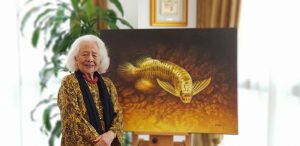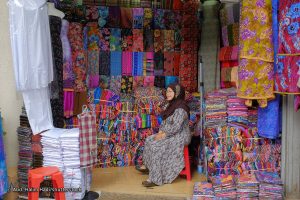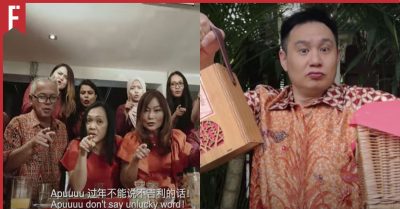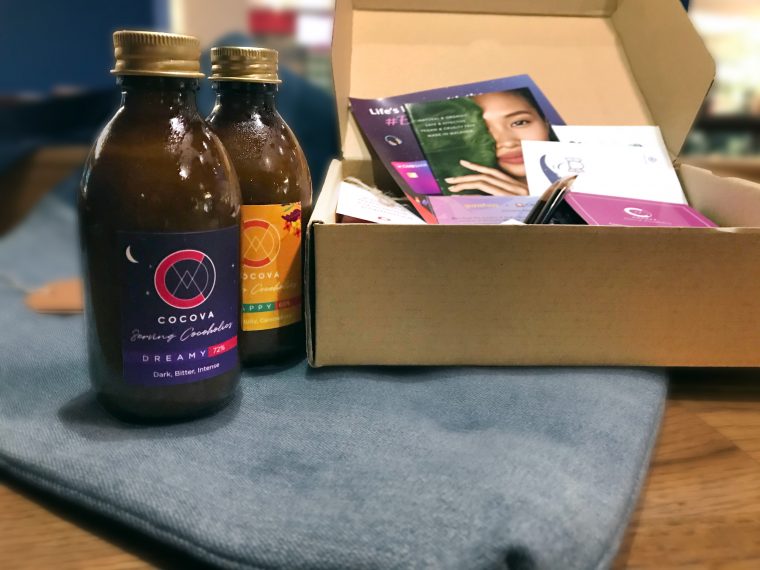
You’re strolling through one of the countless malls that Malaysia is known for. You come across a collection of pop-up stores selling local artisanal products. You don’t buy anything at that moment, but it has piqued your interest. A couple weeks later, you remember the products and go to look it up on Google or Instagram but can’t seem to remember the name of the store.
What do you do now?
Let’s be honest, many of us have encountered this very situation at some point or another. In fact, founder and CEO of Poptron, Brian Johnson Lowe, found himself in the very same predicament some time ago. This was what spurred the idea for Poptron, an online social commerce platform that houses products from local micro, small and medium entrepreneurs.
Working in Publika, Brian would stroll along the pop-up stores and strike up a conversation with their founders.
“I found an amazing pair of shoes and I wanted to buy the pair on the spot but they didn’t have a credit card terminal. Unfortunately I lost their business card, and it was only when I was strolling around another bazaar that I found him again,” remembers Brian.
Stories With a Pop of Life
Poptron is a combination of pop-up stores (Pop), trusted (tr) and online (on). Newly launched, the platform hopes to bring awareness to locally-made artisanal products, nurturing a community that loves and appreciates emerging brands, beautiful products and the wonderful creators behind them.
“All the brands we feature have strong brand stories. The brands have come to life because the founder(s) have found inspiration to create something personal to them to share with the world. They are incredibly passionate about what they are contributing, and have put in countless hours perfecting their craft,” says Brian.
We here at The Full Frontal managed a little inside scoop with some of the brands that Poptron currently hosts on their platform. Here are a few of their stories, straight from their founders. Read on and you might find a few familiar brand names!
Hornbill Time & Wear (from co-founder Syazleen Sies)
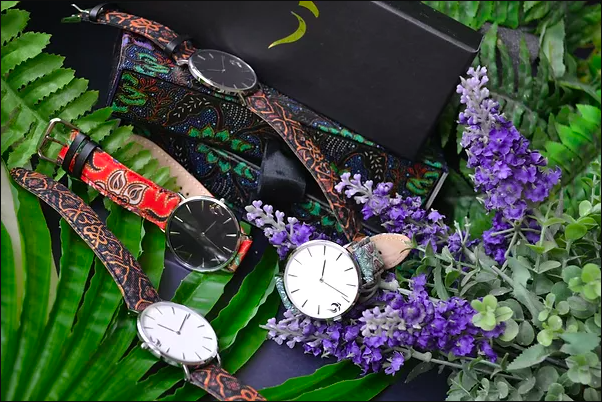
Taking inspiration from other countries and cultures, we wanted to reinvent and change the way Malaysians view batik, we wanted to educate Malaysians that batik is something more than just wearing it during special occasions – It’s our culture, art and heritage.
We then pondered on how we could make batik more accessible and minimal that could be worn on a daily basis. And that’s when the light bulb lit up.
We started off with batik watch straps, creating beautiful watch straps that carry a functional purpose. We then created batik socks, batik face masks and will continue to create batik-themed products that allow you to showcase your appreciation of local batik culture.
Batik is one of our oldest forms of art, and I think that it is one thing all Malaysian agree that it’s totally Malaysian. Also, it does help that we try our best to source our materials from local suppliers. Supporting local businesses while we build our business.
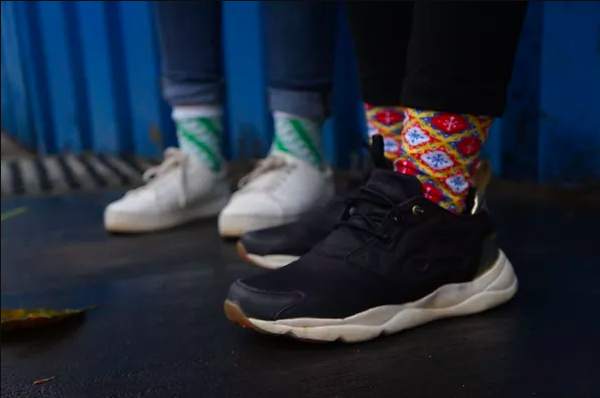
If there’s anything MCO has taught us, it’s #kitajagakita. Without the Malaysian spirit, Hornbill Time & Wear wouldn’t be where it is today. In a way, I think it’s a Malaysian culture to support one another. Over the past 63 years, we have gone through a lot and we have supported one another through thick and thin. No doubt we would appreciate the additional support, but we’re grateful with all the support we’ve received to date.
Platforms like Poptron are great avenues for advocating local creations. We need more of these; we need to create easy accessibility for everyone to discover local products, and we need more support from the government, institutions and city councils to promote local products without needing to go through the challenges of painful registration, onboarding and approvals. I guess there’s a stereotype that locally made products are of low-quality. It’s a chicken and egg situation. If we do not support local products, there will always be a challenge to grow and improve quality.
Imsy Craft (from founder Syakira Azmi)
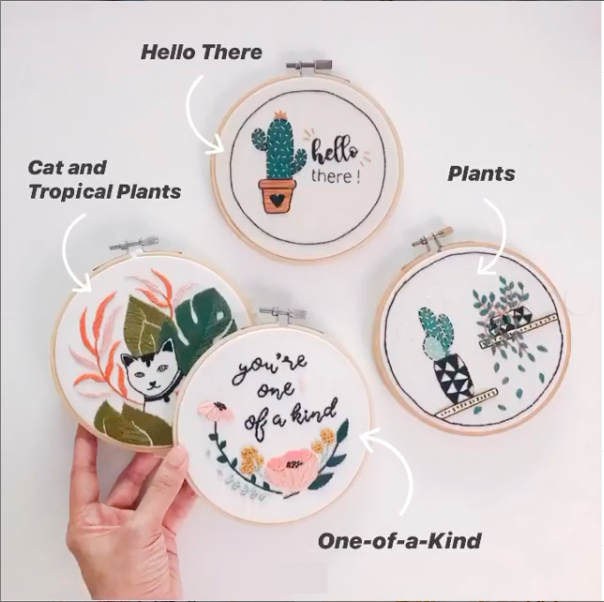
Two years ago when I needed a way to improve my mental wellbeing, I had a strong desire to do something creative again, to work with my hands again. I explored Modern Hand Embroidery and fell in love with the process. The hobby turned into a passion and I created Imsy Craft to showcase my embroidery skills on Instagram. Since I started receiving a number of requests for commissions from my friends and others, it has grown into my full-time business.
This craft and entrepreneurship journey has helped me a lot in this fast-paced modern world. While I love creating beautiful embroidery pieces for homes, I also intend to help and inspire others through crafting.
The source of my creativity is fuelled by many things, mostly the things that surround me such nature, shapes, colours, patterns, cats, life stories and anything around me. The experience of really noticing the world around me and within me is the greatest inspiration of all.
I am also hugely inspired by the creative process. There are endless possibilities and the process brings me to a place of being totally present and that itself is inspiring. Especially with embroidery, every stitch is intentional and it is a very slow process. I also love that embroidery proves that great things can come from small beginnings!
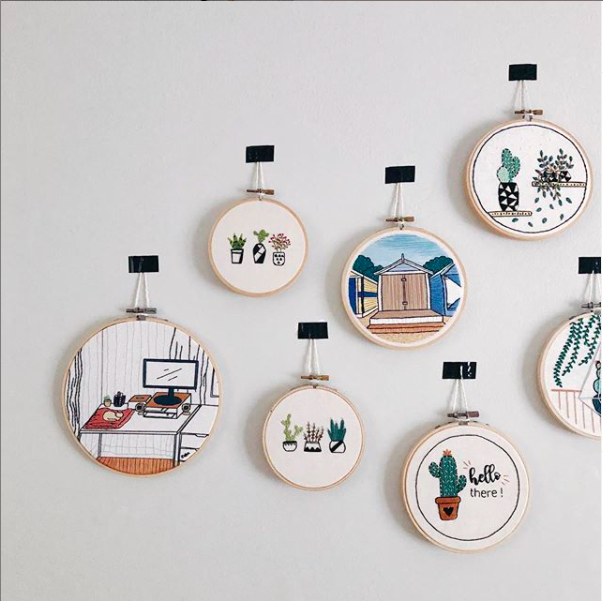
Malaysians come from various unique backgrounds but it is great to see that the DIY Embroidery Kits I created are bringing people together when they make them with family or friends. As people are trying out the kits, they will also get to understand that it is not easy and takes long hours to create such delicate pieces, hence cultivating an appreciation for handmade arts. Through my work, I hope to encourage Malaysians to explore their creative side and inspire more people to follow their dreams. To sum it up, ‘Malaysia Boleh’!
Generally speaking, there’s definitely more grounds for both Malaysians and local businesses that can be worked on. We usually just buy products from brands that we are familiar with, so Malaysians may have been brainwashed by advertisements which are mostly by the imported brands. There are many local businesses nowadays that are already producing good quality with affordable products but most Malaysians may not know about their presence. Some may even export their products but I think the mentality that imported goods are always of superior quality and cheaper is still stuck in many Malaysians.
This needs change from both sides; Malaysians and local businesses. There must be a constant education to convince Malaysians about why they should buy local products and what these businesses can offer in terms of quality and affordability. While Malaysians need to work on continuously supporting and promoting local businesses, the providers must also strive to produce products that are competitive in terms of quality and cost. Nowadays with a lot of marketing tools, local businesses should increase their presence on social media or anything online. With both working towards each other, we should see a shift in mentality and will eventually make local products and services to become globally popular as imported goods.
Jacktus (from founder Jack Yin)
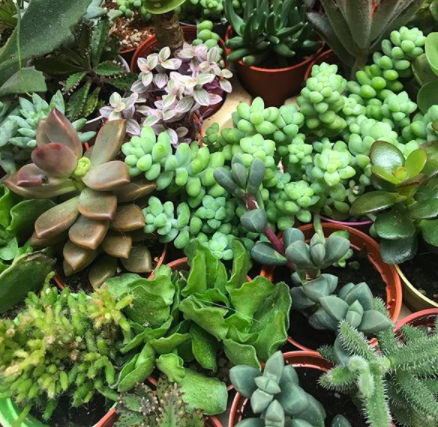
I’ve always wanted to try earning a living through things that are close to my heart. My brand Jacktus started out as a succulent plants brand a few years ago when I was trying to learn more about these desert plants. Back then, succulents were not as common or well-known and people were struggling to find more info about them. I thought I could provide a knowledge-sharing service and it’s been growing since then. Further down the line, I made my art into products and started incorporating them into Jacktus. It is now an art + cactus brand!
When I am struggling to decide on a product to create, I browse house decor stores to find out which products are the ones that are still selling after a long period of time. After all, I need to make sure that the money I spend on creating products is well-spent.
Art-wise, I have never needed much inspiration because I have an almost never-ending list of content and visual ideas waiting for me to get back to them. It’s getting to the point where I have to give up on a lot of my ideas and focus on those that I think can be meaningful and impactful.
As Malaysians, we take our breakfast seriously and I think my art brings out the spirit of food-and-drinks-loving every Malaysian has. I think it’s really wholesome that our kopitiam culture is celebrated by everyone of different ethnicities and religious backgrounds despite all our differences.
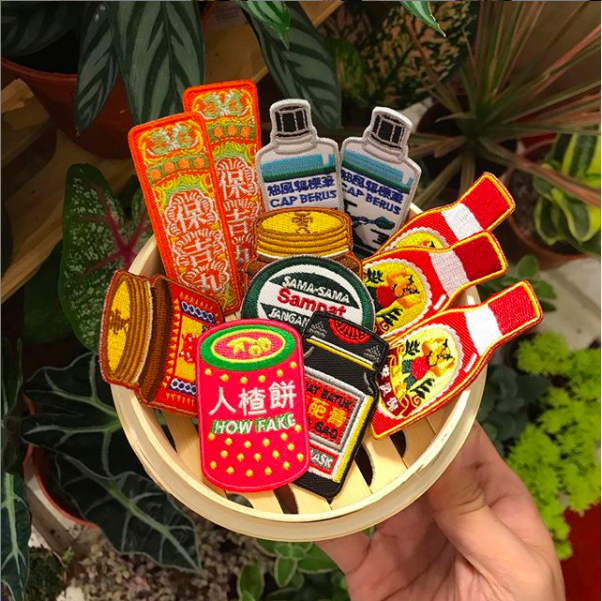
It is a little sad to say that foreigners definitely do support my art business more than locals, who tend to buy more plants instead, but I think such issues happen similarly all over the world. Expats are generally more well-off and can afford to support artists.
I wouldn’t say that Malaysians don’t support local businesses enough because everyone is having a tough time and saving up because of the pandemic. When they can’t afford my art, I find that they would share my brand and products to their friends, and for me that helps tremendously too!
Government grants and incentives for artists could help change things for the better. I can’t stress this enough. It is depressing to find less and less artists running bazaars and markets because the rentals are getting more and more ridiculous. For example, it used to be really affordable and artist-friendly to rent a booth in a mall a few years ago since bazaars back then mostly happened only on weekends, but most malls now require us to take five days of a week and sometimes even a whole week (plus rental for everyday is the same!).
This is why the art market is basically non-existent now because artists don’t earn a lot, and if we are making losses off bazaars, we can only rely on online platforms. On the other hand, I also believe that artists could use some marketing and business development training. Again, we need help from the government.
Just Mar’s (from founder Marhaini Mustaffa)
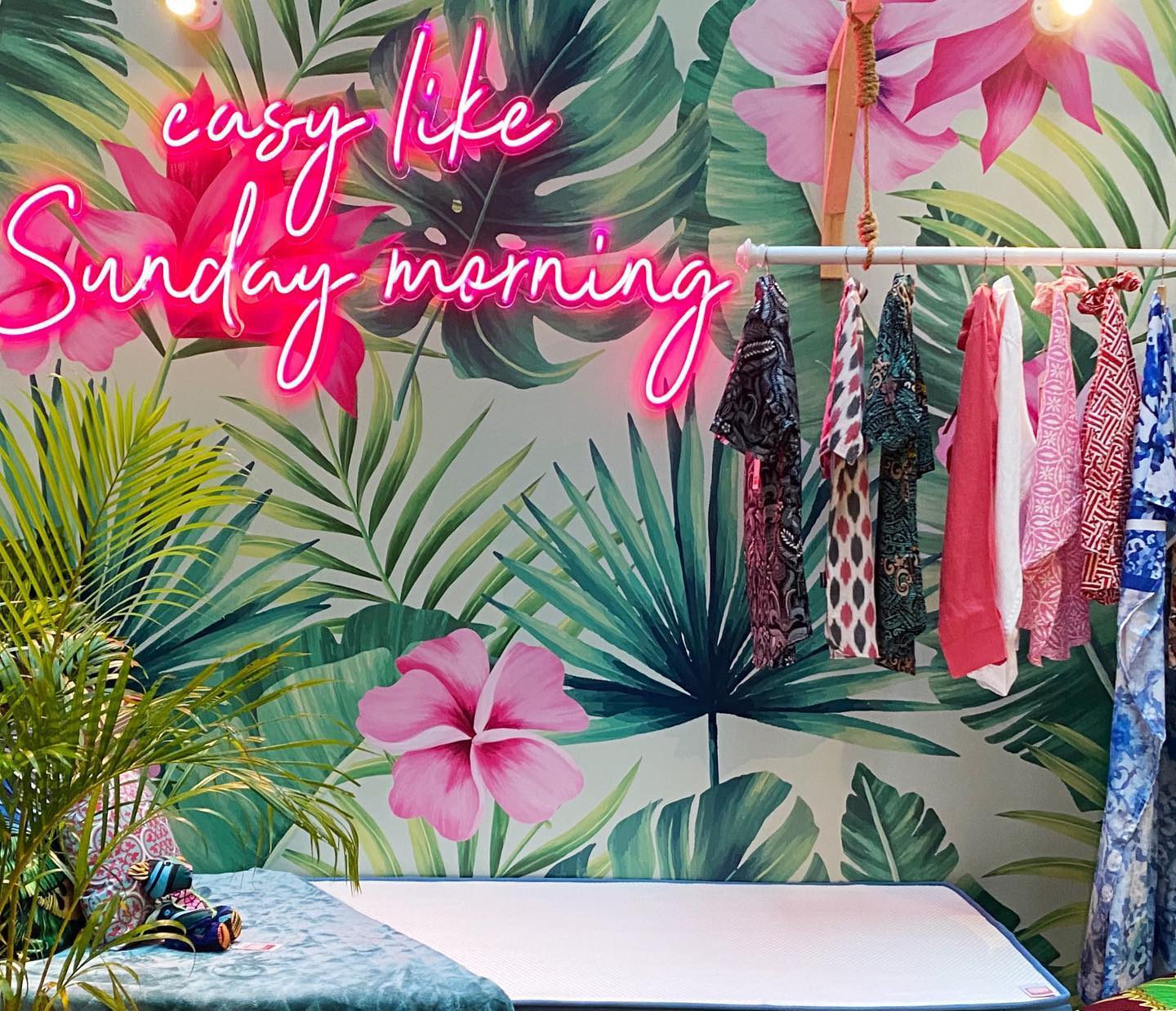
I was a stay-at-home mum who was caring for my child who had a brain tumour. Both of us needed a distraction. Online business was just booming at that time and we felt that was the way to go. We didn’t know what to sell so we kept it open and Marisa (my late daughter) gave it the name Just Mar’s. She said it could be ‘All about me’.
Marisa always drew well and she scribbled pretty clothes over her sketchbook. I felt clothing was a good choice as it does not demand as much time with my focus being on her.
My products have to be about me and people who share the same lifestyle. With my lifestyle I don’t really have much time to be inspired unfortunately. How I dress is how I live. I’m always on-the-go and I like clothes that are simple, easy, fuss-free, affordable and unique.
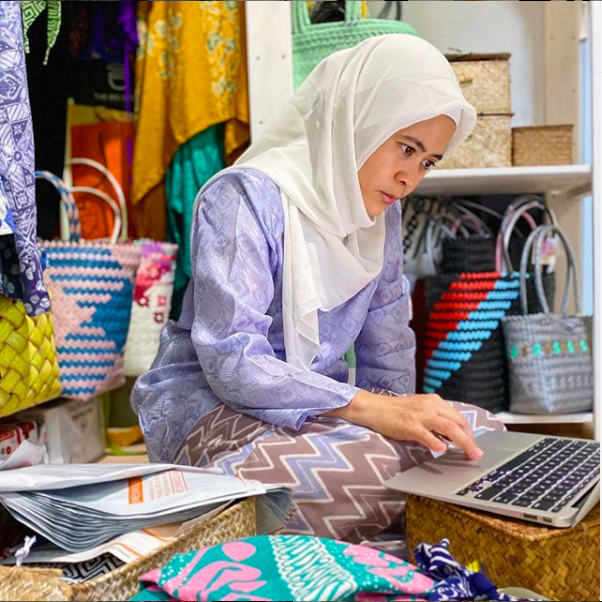
Our products are for all races. The stigma that batik is worn primarily by Malays should be broken. The focus on my tops is to break the ‘formality’ and race associated with wearing batik.
I feel Malaysians do support local business especially the small and online business. I for one actually look for small local businesses online and try to support them. There are many in my boat and we shop online because we want to help support each other. Most of the small local businesses have a story behind the business and for some of them, their business is their survival.
There’s so much hidden talent amongst Malaysians and I’m blessed for a platform such as Poptron who recognises us. Support amongst small businesses will help them survive but companies such as Poptron can help them grow and bloom to their full potential.
Seven Tea One (from founder Lai Chong Haur)
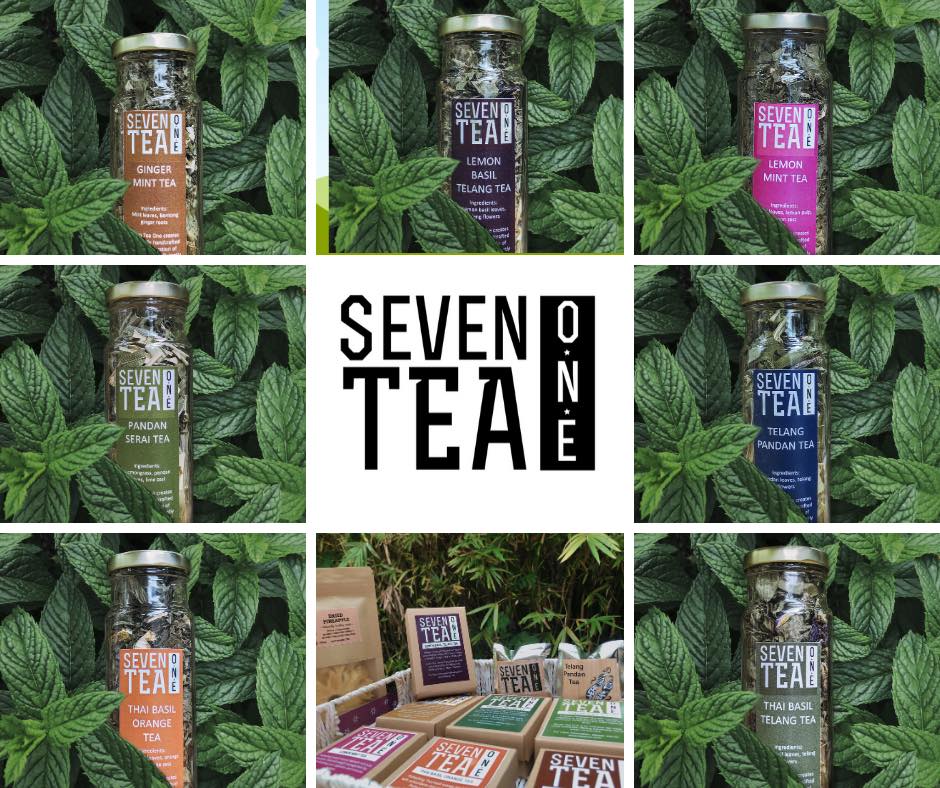
I have been in the corporate world for about 20 years and been doing community and environment work for more than 10 years now. I realised there is a huge challenge for differently-abled teens to gain employment after their school-going age. So, I’m inspired to create a space to fill this social gap. At Seven Tea One we provide that opportunity for our teens with autism spectrum disorder (ASD) to learn employment skills and work here to gain a dignified income.
Our main products are handcrafted local tea herbs, e.g. pandan, serai, kemanggi, selasih, kunyit, ginger etc. We transformed these local herbal heritage into beverages because they are caffeine-free and natural with high antioxidant properties. We want to serve the goodness of our very own herbal heritage for the wellness of everyone.
We fully champion the Malaysian herbal heritage. Our herbs are planted in our small farm located in Bukit Tinggi, Bentong and some we procure from local farmers. These are herbs which have been consumed through generations of Malaysians. We are proudly Malaysian!
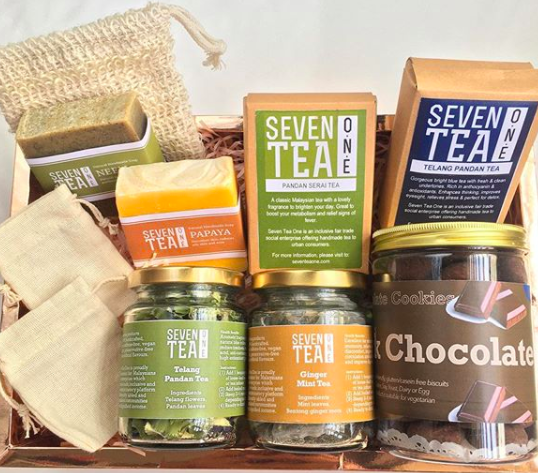
I think more Malaysians are into buying Malaysian products because local businesses nowadays are very advanced in their product R&D and offerings, which meet the expectations of consumers. It is crucial for us to support and buy Malaysian products as part of our responsibility towards nation-building, and even more so during the current economic conditions.
I would reckon more incentives and assistance must be given to local companies to produce Malaysia Products in terms of R&D, market penetration and business expansion in order for these companies to be resilient and sustainable, at the same time competitive with imported products/brands.
One Stop Pop Shop
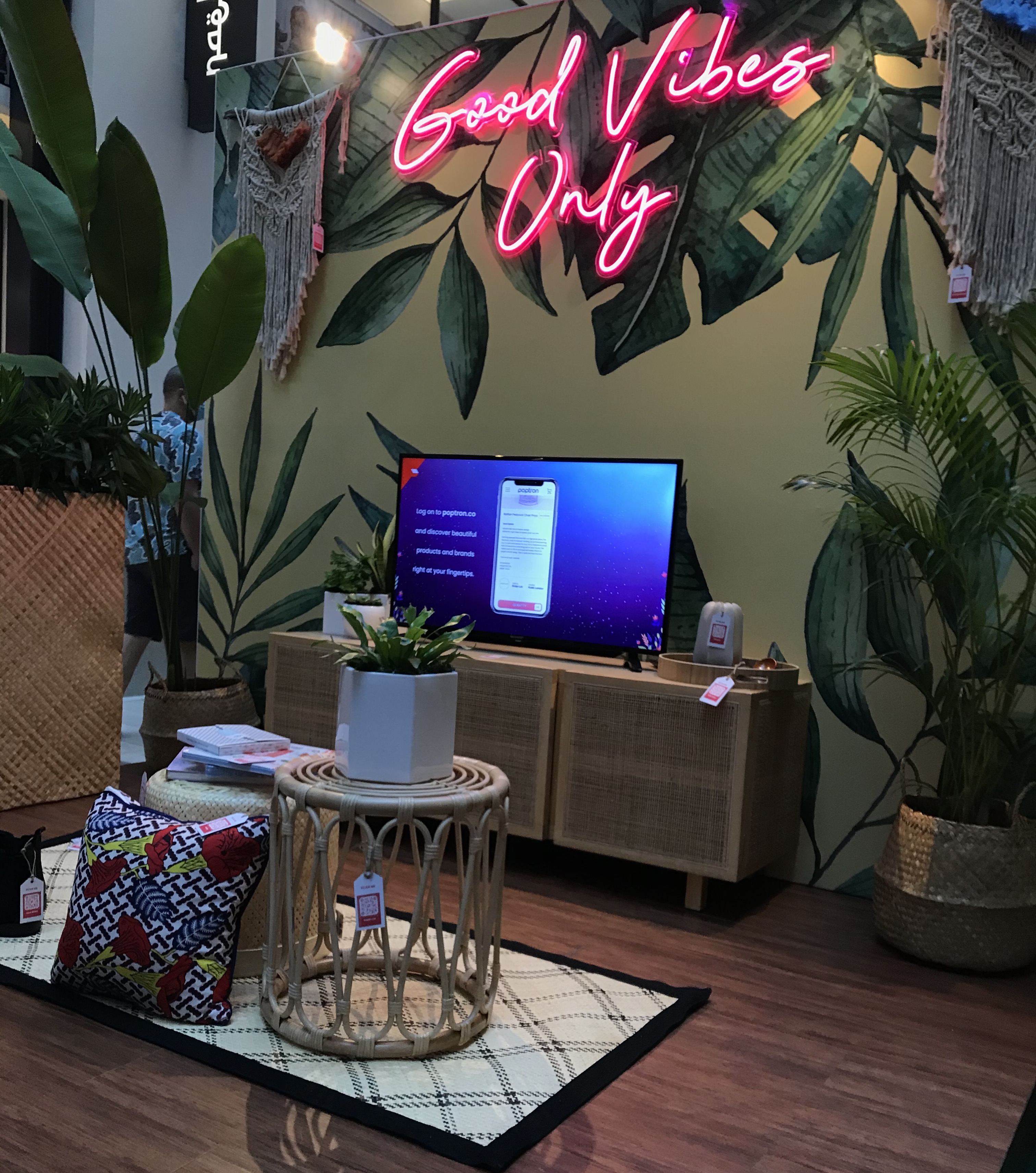
Ultimately, it is the compelling stories behind the brands and products that differentiate artisanal goods from the usual store-bought stuff.
“It’s such a heart-warming experience to hear their stories and understand the true passion and pride that goes into what they create,” says Brian.
“Most Malaysians do like supporting local, but at the end of the day, it’s always the stories that people are drawn to, and unfortunately some of these stories never see the light of day. We believe through Poptron we are able to make known these amazing stories and help amplify the positive impact most of these brands have by merely being local, thus less carbon emissions produced in the creation process.”
However, though support for the local entrepreneur scene has come a long way, we still have a ways to go. For the longest time, the narrative surrounding locally produced goods have always been ‘low quality’.
“Many people are amazed when they find out a beautifully made product is Malaysian! We want to change this,” exclaims Brian.
But for change to happen, we all need to work together. So, kudos to CIMB for supporting local and co-hosting this event, and providing some #extranotordinary discounts and bonus points when you purchase on Poptron with CIMB card! We Malaysians as a society are no strangers to banding together for the betterment of our nation. Why should supporting our local business and artisanal goods be any different?
Platforms like Poptron are great in providing Malaysian entrepreneurs a place to be seen, but the real support comes from us as users and consumers. Here’s how you can do your part.

